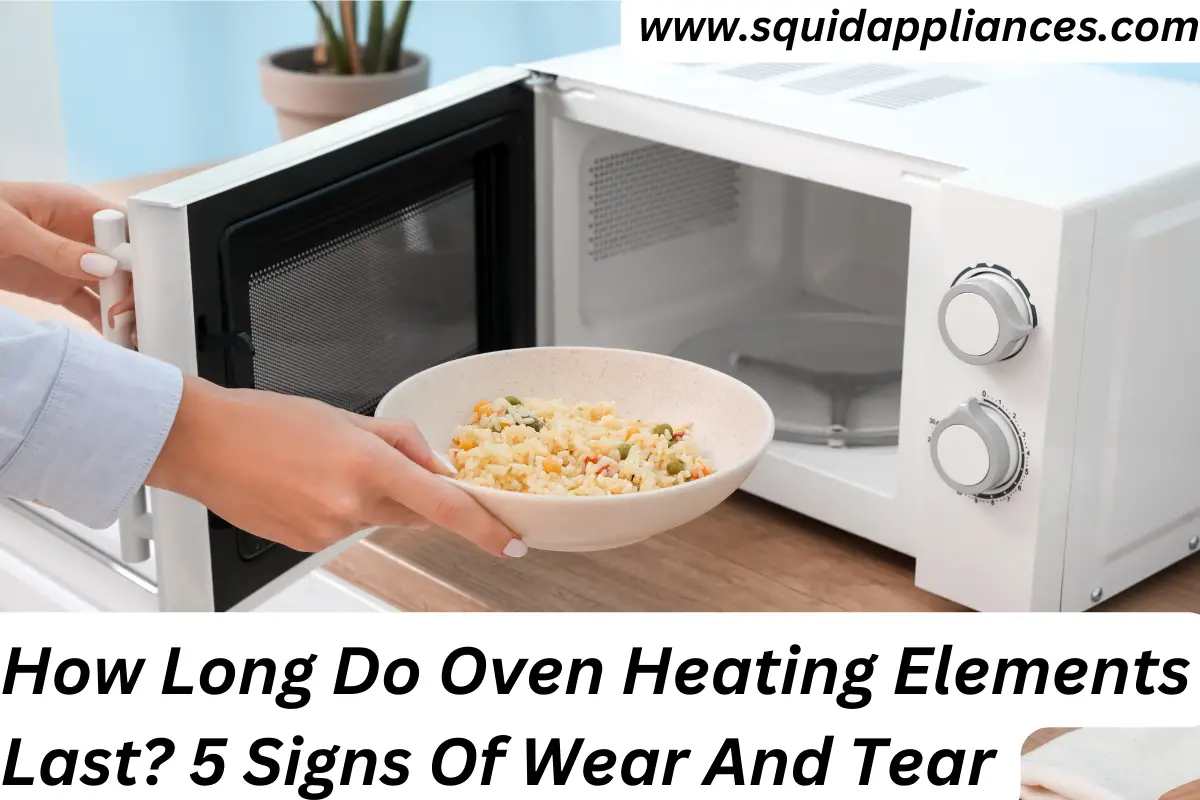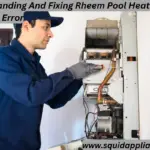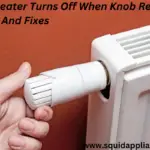Hey there! Ever wondered how long your oven heating elements actually last?
Well, you’ve come to the right place. As an expert in appliance maintenance and repair, I’m here to give you all the insider knowledge on this topic.
Oven heating elements play a crucial role in ensuring that your food is cooked evenly and thoroughly. But just like any other component, they have a finite lifespan. So how do you know when it’s time for a replacement? In this article, I’ll walk you through the common signs of wear and tear to look out for.
From visible damage to inconsistent temperature control, there are several factors that can affect the longevity of your oven heating elements. Don’t worry though – I’ll also share some tips on proper maintenance and care that can help prolong their lifespan.
So if you’re ready to become an expert on oven heating elements and ensure that your next cooking masterpiece turns out perfectly, keep reading. Let’s dive in!
How Long Do Oven Heating Elements Last?
Yes, oven heating elements typically last 5-10 years. Signs of wear include uneven cooking or temperature inconsistencies. Regular cleaning and stable power supply extend their lifespan. Professional assistance may be needed for repairs. Understanding these signs and factors aids in timely maintenance for optimal oven performance.
Key Takeaways
- Oven heating elements have a finite lifespan
- Signs of wear and tear include uneven cooking and inconsistent temperature control
- Visible damage, such as cracks or breaks, and sparking or arcing are common signs of deterioration
- Regular maintenance and cleaning can help prolong the lifespan of oven heating elements
Understanding Oven Heating Element Lifespan
You may be wondering how long your oven heating element will last and what signs of wear and tear to look out for. Maximizing oven performance is essential, so it’s important to understand the lifespan of your heating element.
Generally, a good quality heating element can last around 5-10 years with proper care. However, if you notice uneven cooking or inconsistent temperature, it could be a sign of heating element issues that need troubleshooting.
Common Signs of Wear and Tear in Oven Heating Elements
Indicators of deterioration in oven heating elements include noticeable degradation and diminished performance. If you notice that your oven is taking longer than usual to reach the desired temperature or if it isn’t heating evenly, it might be a sign that your heating element is wearing out.
Other common signs include visible damage, such as cracks or breaks, and sparking or arcing. While troubleshooting tips can help identify the issue, DIY repair should only be attempted by those with proper knowledge and experience.
Factors Affecting the Lifespan of Oven Heating Elements
One of the key factors that can impact how long oven heating elements stay functional is the frequency of use and the intensity of cooking. The impact of voltage fluctuation on oven heating element lifespan is that voltage fluctuations can cause excessive heat or insufficient heat, which can lead to wear and tear on the heating elements. It’s important to ensure a stable power supply to prevent damage to the elements.
Another factor that affects the lifespan of oven heating elements is the role of oven usage frequency in their deterioration. Frequent use puts extra strain on the heating elements, causing them to degrade faster. Regular maintenance and cleaning can help prolong their lifespan.
Proper Maintenance and Care for Oven Heating Elements
To properly maintain and care for your oven heating elements, it is crucial to regularly clean them and ensure a stable power supply to prevent any potential damage caused by voltage fluctuations.
Cleaning techniques include using a damp cloth or sponge to wipe away any food debris or spills, and avoiding harsh chemicals that can corrode the heating element.
Troubleshooting tips involve checking for loose connections, testing the continuity of the element with a multimeter, and replacing any faulty parts promptly.
| Cleaning Techniques | Troubleshooting Tips |
|---|---|
| Use a damp cloth or sponge to wipe away food debris or spills | Check for loose connections |
| Avoid using harsh chemicals that can corrode the heating element | Test the continuity of the element with a multimeter |
| Regularly inspect and replace faulty parts promptly |
When to Replace Your Oven Heating Element
Knowing when it’s time to replace your oven heating element can be determined by observing its performance and assessing any irregularities in heat distribution or cooking times.
If you notice that your oven takes longer than usual to preheat, or if there are cold spots in your food after cooking, it may be a sign of a worn-out heating element.
Troubleshooting techniques, like checking for visible damage or testing the resistance with a multimeter, can help determine if repairing or replacing the element is necessary.
Frequently Asked Questions
Can I extend the lifespan of my oven heating element by cleaning it regularly?
Regular cleaning can help extend the lifespan of your oven heating element. Use gentle cleaning methods such as wiping with a damp cloth or using a soft brush to remove any buildup. It is also important to avoid using harsh chemicals that could damage the element.
How do I know if my oven heating element is damaged beyond repair?
To prevent oven heating element damage, regularly clean it and avoid using abrasive materials. Signs of a damaged element include uneven heating, visible cracks or breaks, and sparking. If any of these occur, the element may be beyond repair.
What are some common mistakes that can shorten the lifespan of an oven heating element?
Common mistakes that can shorten the lifespan of an oven heating element include neglecting regular maintenance and improper installation. It’s crucial to perform common maintenance tasks and ensure proper installation to maximize the longevity of the heating element.
Can I replace the heating element in my oven on my own, or should I hire a professional?
I recommend hiring a professional for oven heating element replacement. DIY oven repairs can be challenging and potentially dangerous if not done correctly. Professionals have the expertise and tools needed to ensure a successful and safe repair.
Are there any warning signs that indicate my oven heating element is about to fail?
Warning signs of a failing oven heating element include uneven cooking, longer preheating times, and visible damage like cracks or burns. To maintain oven heating elements, clean regularly and avoid using abrasive materials that could cause damage.
Conclusion
In conclusion, understanding the lifespan of oven heating elements is crucial for maintaining the effectiveness and efficiency of your oven. By recognizing common signs of wear and tear, such as uneven cooking or no heat production, you can take necessary action to address any issues.
Factors like usage frequency and proper maintenance play a significant role in determining how long your heating element will last. By following proper care guidelines and promptly replacing worn-out elements, you can ensure that your oven continues to perform optimally for years to come.






